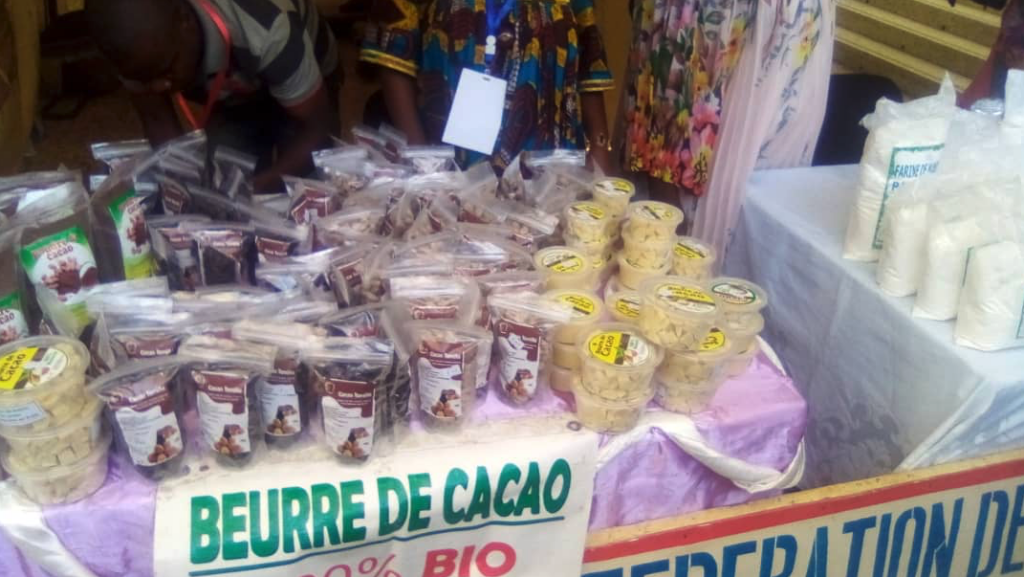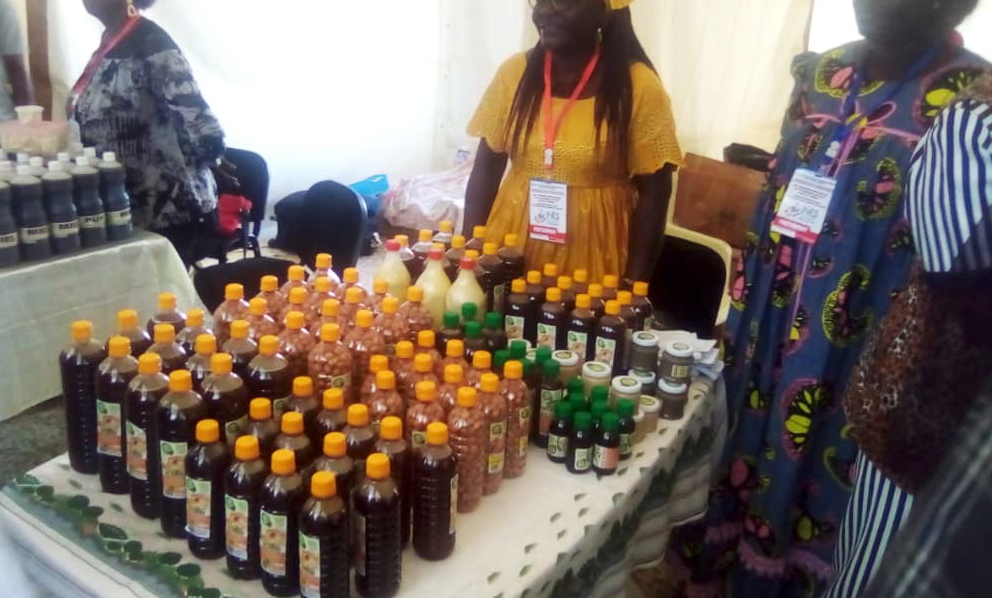In recent weeks, the African Network of the Solidarity Social Economy (RAESS) – RIPESS Africa’s members have organized several activities and conferences to promote and discuss the Solidarity Social Economy (SSE). This article summarizes the main activities that have taken place in Cameroon, Mali, Senegal and Benin, demonstrating the dynamism of African organizations engaged in SSE.
Written by Mamadou Seydou Diallo, RAESS’ General Coordinator
Since its creation in 2010, RAESS has been working to promote SSE in Africa through national networks. To this end, RAESS mobilizes national SSE actors through its members, who work closely with public authorities, to support SSE organizations and companies to pool their knowledge and share their experiences in the processes of wealth creation and the fight against social inequality.
Dedicated forums and fairs are organized to enable key actors (cooperative and mutual societies, associations, support services, political authorities, etc.) to meet again to exchange SSE knowledge, exhibit and sell products, but above all to make actions, actors and their products visible.
It is within this framework that forums and fairs have been organized in a number of African countries including Cameroon, Mali, Senegal and Benin.
Cameroon
 From October 29th to 30th 2019, the 4th edition of the Social Economy National Days (JNES, in French) was held at the Yaoundé Congress Centre. The central subject was “Economy at the heart of inclusive development in Cameroon” and it brought together just over 400 social economy actors. The main objective was to enable the activities of the Social Economy Units (SEUs) to build inclusive development in Cameroon through multifaceted partnerships.
From October 29th to 30th 2019, the 4th edition of the Social Economy National Days (JNES, in French) was held at the Yaoundé Congress Centre. The central subject was “Economy at the heart of inclusive development in Cameroon” and it brought together just over 400 social economy actors. The main objective was to enable the activities of the Social Economy Units (SEUs) to build inclusive development in Cameroon through multifaceted partnerships.
Highlighting the importance of SEU’s networking for inclusive development, it was an opportunity for the National Social Economy Network (RESSCAM) to invite these units to pool their efforts and achieve a common vision: to make social innovation a lever for transformation in cameroon. This will require the professionalization and structuring of the SEUs, but also the involvement of all stakeholders in this process.
All the recommendations made to the Ministry of Small and Medium-sized Enterprises, the Social Economy and Crafts (MINPMEESA) will enable Cameroon to meet the new requirements of the constantly evolving social and solidarity economy sector. Recommendations were related to projects and programs accompanying the SEUs, the involvement of decentralized territorial authorities in the promotion and development of the Social Economy, the establishment of solidarity finance to support the SEUs, and the contribution to the empowerment of SEUs through self-financing strategies
You can read the full article on the 4th edition of the National Social Economy Days here.
Mali
From Novembre 4th to 6th 2019, the Solidarity Social Economy (SSE) fair was held as part of the 25th edition of the month of solidarity and the fight against social exclusion in Mali under the High Presidency of the Minister of Solidarity and the Fight against Poverty. The theme of this edition was “Financing social and solidarity economy organizations and enterprises in times of humanitarian crisis”.
The Ministry of Solidarity and the Fight against Poverty of Mali has included as a priority the promotion and support to Social and Solidarity Economy Organizations. To make this decision, it has taken the importance of the SSE sector into account in the creation of jobs, goods and services, cooperative societies, mutual societies and associations working in fields as varied as micro-credit, solidarity finance, fair trade, health, production, insurance, education, etc.,.
This fair is the expression of the impetus that the Government of Mali intends to give to these SSE organizations so they can expose their knowledge and know-how to exchange, sell and buy in order to build wealth.
There were 87 official guests, including 44 from RENAPESS, at the “Maison des Jeunes” (Youth Centre). The highlights were the speeches of the Mayor of Commune II, the sponsors and the Minister, the exhibition stands of SSE products and SSE knowledge. At the same time, two discussions were held on “Financing Social Solidarity Economy organizations and enterprises in times of humanitarian crisis” and on “Social Security schemes in Mali”.
Among its objectives, the fair worked to raise awareness of the various organizations and SSE companies (cooperative societies, associations and other groups and some support structures); to present the various SSE products for better promotional sales and to encourage exchange between the various SSE actors around their concerns.
It is important to recall that in 2003, Malian SSE actors, with the support of the Ministry in charge of solidarity, set up an umbrella organization called the National Support Network for the Promotion of the Social and Solidarity Economy (RENAPESS), which is a founding member of the African Network for the Solidarity Social Economy (RAESS) and a member of the International Network for the Promotion of the Solidarity Social Economy (RIPESS). This network currently has 63 member organizations.
Today, there are 18264 cooperatives in Mali that are in the process of harmonizing with the OHADA Uniform Act and 210 social mutuals in various sectors (health, insurance, production, services and others). In addition, on October 9th 2014, the Government of Mali adopted the National Policy for the Promotion of the Social and Solidarity Economy and its Action Plan in Bamako with a major contribution by RENAPESS supported by its partners, mainly CECI.
Senegal
 The Ministry of the Microfinance and Social Solidarity Economy of Senegal organized the SSE confernece from October 26th to November 2nd 2019 at the Diamniadio Exhibition Centre.
The Ministry of the Microfinance and Social Solidarity Economy of Senegal organized the SSE confernece from October 26th to November 2nd 2019 at the Diamniadio Exhibition Centre.
This African SSE Fair is an event designed and initiated by the Social Solidarity Economy Working Groups (WG – SSE), set up within the framework of the Morocco-Senegal Economic Development Groups on the one hand, and Morocco-Côte d’Ivoire on the other hand.
The Chairmen of WG – SSE of Morocco, Ivory Coast and Senegal, under the aegis of the National Council of the Senegalese Employers’ Federation, the General Confederation of Moroccan Enterprises and the Ivorian Private Sector, agreed to institutionalize the SSE Conference in the agenda of their respective working groups and to organize it on a rotating basis.
It was the 2017 Casablanca Declaration that designated the passing of the torch to Senegal to organize the second edition of the SSE Conference. The main subject of the SSE 2019 Conference was: “The SSE: an alternative and inclusive model of entrepreneurship”. The overall objective was to increase the visibility of products and services from SSE value chains and thus promote them.
More specifically, it aimed to highlight the contribution of SSE to economic and social development, to the structuring of local economies in the territories of our countries, to the inclusion and empowerment of women, youth and the disabled in the processes of creating added value and wealth, and ultimately to the sustainable improvement of their living conditions.
Through its Scientific Forum, it also aimed to contribute to the sharing of experiences and the construction of collective intelligence on the issues and challenges of SSE consolidation in order to inform public policies in favour of inclusive economic and social development, especially for the most vulnerable citizens.
Finally, the SSE Exhibition aimed to promote economic cooperation between the actors of the Social Solidarity Economy of Senegal, Morocco and Ivory Coast, and to become an inclusive African Conference, to better contribute to the promotion of economic diplomacy, particularly in the current context of the African Continental Free Trade Area (ACSFA).
This exhibition was also marked by a cultural event to help promote Senegal’s diversity and cultural richness. Similarly, in order to encourage creativity and stimulate the dynamism of entrepreneurship in the SSE, the SSE Conference launched a call for applications to participate in “Talents & Innovation” competitions on the basis of specifications.
Benin
The Beninese Group of the Solidarity Social Economy (GBESS) has also participated in several activities to promote the social and solidarity economy recently.
First, the President of GBESS met with the Regional Director of the OIF West Africa Office in Lomé as part of a partnership. The Director of BRAO/OIF accepted this partnership, and a partnership agreement will be signed towards the end of December 2019.
In addition, GBESS disseminated and followed up on a call for projects to its members and social enterprises as part of its cooperation with the Société Coopérative ”SENS-Bénin” mandated by the International Organization of La Francophonie (OIF).
GBESS also identified 34 social and inclusive enterprises in Benin, as part of a partnership with the Association:”Le Mouvement Entrepreneurs Sociaux (MOUVES-France)”. This took place in September and October
And finally, GBESS accompanied the Union of Women’s Groups of Ouèssè, to participate in the Festival Gastronomique Zâ from 25 to 29 September 2019 in Cotonou.





Leave A Comment